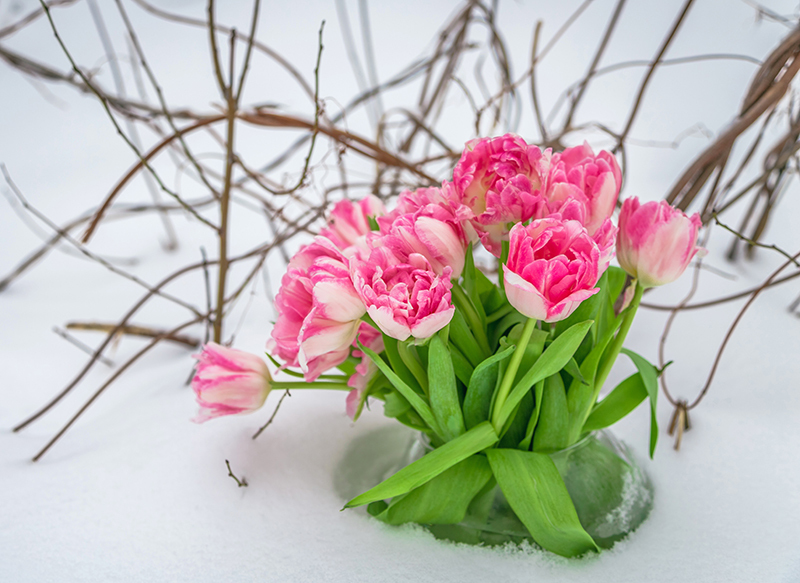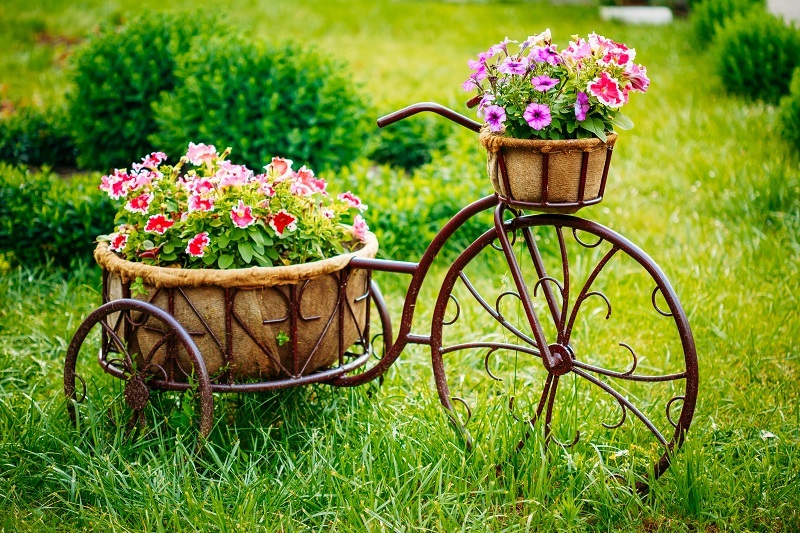Peony Flowers: A Palette of Symbolism and Meaning
Posted on 25/08/2025
Peony Flowers: A Palette of Symbolism and Meaning
Peony flowers have captivated the hearts of people worldwide for centuries, gracing gardens, bouquets, and works of art with their lush, opulent blooms and vibrant colors. But beyond their undeniable beauty, peonies are steeped in rich history and meaning, making them much more than a stunning addition to any landscape or floral arrangement. In this comprehensive guide, we delve into the fascinating world of peony symbolism, exploring their origins, cultural significance, color meanings, and practical uses, all while unraveling why these blooms remain beloved icons of love, honor, and prosperity.

History and Origins of Peony Flowers
Peony flowers, scientifically known as Paeonia, belong to a genus of about 33 species of perennial plants, native to Asia, Europe, and western North America. Their illustrious past can be traced back thousands of years, with the earliest documented references found in ancient Chinese literature and art. The Chinese have cultivated peonies for over 2,000 years, considering them so important that they were dubbed the "king of flowers" and regarded as the national flower of China for centuries.
- China: Synonymous with prosperity, monarchy, and honor.
- Greece: Ancient Greeks believed peonies were named after Paeon, a physician to the gods.
- Europe: Victorians adored peonies for their lushness and saw them as emblems of good fortune and romance.
These flowers traveled along trade routes, inspiring myths and legends from the East to the West, each culture embracing peony symbolism within their own traditions and folklore.
The Name and Botanical Features
The genus name, Paeonia, is attributed to Greek mythology. Paeon was a student of Asclepius, the god of medicine. The story tells that Zeus saved Paeon from Asclepius' jealousy by turning him into a peony flower. This connection to healing is part of why peonies have also been associated with medicinal properties in various cultures.
Peonies come in several forms - herbaceous, tree peonies, and intersectional (Itoh) hybrids - each offering unique characteristics in bloom shape and growth habit. Regardless of the form, peony flowers are most famous for their extravagant, multi-layered petals and intoxicating scent.
Peony Flower Symbolism across Cultures
The meaning and symbolism of peonies are as layered and multi-faceted as their stunning blooms. They are revered in art, literature, and culture, symbolizing everything from wealth and romance to bravery and remembrance.
Peony Symbolism in Chinese Culture
- Prosperity and Honor: The peony is known as fuguihua, or "flower of riches and honor" in Mandarin. It is an auspicious symbol heralding good fortune and high social status.
- Royalty and Nobility: In ancient China, peonies decorated the imperial gardens of emperors and were exclusive to the ruling class.
- Feminine Beauty: Peonies also represent feminine elegance and are considered a metaphor for the beauty of a noblewoman.
During the Tang Dynasty, peonies were extolled in poetry and paintings, immortalizing their position as a symbol of grace and prosperity.
Peony Symbolism in Japanese Culture
Known as Botan in Japanese, peonies are esteemed in Japan, commonly featured in traditional tattoos, fabrics, and ceramics.
- Bravery: In Japanese art, peonies embody the spirit of bravery and honor, especially among the samurai class.
- Good Fortune: Peonies are associated with positive blessings for happiness and a prosperous life.
- Compassion: They are also seen as symbols of compassion and a gentle heart.
Peony Symbolism in Western Culture
Victorian flower language, or "floriography," ascribed deep meaning to peonies.
- Romance and Bashfulness: Peonies represent romance, as well as shyness--a notion stemming from Greek myths about nymphs hiding behind these luscious blooms.
- Happy Marriage: It is traditional to give peonies for the 12th wedding anniversary as they symbolize a happy and prosperous union.
- Good Health: In medieval Europe, peony roots and seeds were believed to have healing properties, warding off evil spirits and promoting well-being.
A Palette of Peony Flower Color Meanings
Peony flowers present a vast array of colors, each shade carrying distinct symbolism and emotional resonance. Understanding these color meanings can help you convey the perfect message when gifting or planting peonies.
White Peonies
- Purity and Innocence: White peonies symbolize purity, innocence, and honor, making them popular choices for wedding bouquets and ceremonies.
- Remembrance: They are often used to honor loved ones and to express condolences.
- Apology: White peonies can symbolize regret and the wish for forgiveness, making them thoughtful in reconciliation gestures.
Pink Peonies
- Romance: Pink peonies are the epitome of romantic love, particularly new and tender love. They are ideal for anniversaries and weddings.
- Good Luck: In both Eastern and Western cultures, pink peonies are talismans of happy marriages and good fortune.
- Femininity and Grace: Soft, delicate pinks embody femininity and thoughtful beauty.
Red Peonies
- Passion and Respect: Red peonies are vibrant symbols of passionate love and deep respect.
- Honor: In Chinese tradition, red indicates honor, wealth, and fame, making these blooms especially desired for celebrations.
- Courage: The fiery hue of red peony flowers is also associated with courage and bravery.
Yellow and Gold Peonies
- New Beginnings: Sun-kissed yellow peonies stand for fresh starts, joy, and optimism.
- Wealth: Gold or yellow blooms connote prosperity and abundance, a cheerful wish for success.
Purple and Lavender Peonies
- Loyalty and Nobility: Purple peonies denote loyalty, tradition, and prestige. The color is historically linked with royalty.
- Dignity: Lavender peony flowers evoke dignified grace and wisdom.
Peonies in Mythology and Art
Throughout history, the powerful symbolism of peonies has inspired legends, artistic masterpieces, and enduring traditions.
Peony Flower in Greek Mythology
The myth of Paeon, discussed earlier, is one of healing and transformation. Peonies were believed to possess medicinal qualities that could heal wounds and ailments inflicted by the gods. This legend gave rise to their symbolic association with health and protection.
Peonies in Chinese and Japanese Art
- Scrolls and Paintings: Peonies adorn scrolls, screens, and porcelain, symbolizing opulence and refined taste. The "Peony Pavilion" is a celebrated Ming Dynasty play that uses peonies as a metaphor for love unconstrained by mortality.
- Tattoos: In Japanese tattoo art, or Irezumi, peonies appear with koi fish and dragons, denoting strength softened by beauty.
Peony Flowers in the Language of Flowers
In floriography, the Victorian language of flowers, every bloom delivered a secret message. Peony flowers conveyed a range of sentiments:
- "I am bashful."
- "I wish you good fortune."
- "My heart is full of honor for you."
This tradition endures today, with peonies widely used to communicate subtle yet profound emotions, especially during significant life events.
Peony Flower Uses: Beyond Symbolism
While the meaning of peonies is steeped in symbolism, these flowers also boast a variety of practical uses:
In Medicine
- Traditional Chinese Medicine: Peony root, known as Bai Shao or Chi Shao, is used for its purported ability to nourish blood and alleviate pain.
- Herbal Remedies: Some herbalists use peony in tinctures for cramps, inflammation, and immune health.
In Decor and Landscaping
- Garden Focal Points: Herbaceous and tree peonies make stunning centerpieces in spring gardens.
- Events and Weddings: Their luxurious, voluminous blooms create dramatic arrangements for celebrations.
- Perfumes: The subtle fragrance of peonies is prized in haute perfumery.
How to Grow and Care for Peony Flowers
Given their elegant symbolism and lush beauty, it's no wonder many wish to cultivate peony flowers in their gardens. Below are some essential growing and care tips to ensure bountiful, healthy blooms:
Planting Peonies
- Location: Full sun is ideal, though some light afternoon shade can protect blooms in hotter climates.
- Soil: Well-draining, rich soil encourages healthy roots and prolific flowering.
- Timing: Plant bare-root peonies in the fall to allow them time to establish before spring growth.
- Spacing: Each peony plant should be about three feet apart to ensure proper air circulation.
Care and Maintenance
- Watering: Keep soil moist but not waterlogged. Cut back on watering after the blooming season ends.
- Support: Some taller varieties may need staking to prevent heavy blooms from drooping.
- Pruning: Cut back foliage in the fall to reduce disease risk and promote vigorous regrowth.
- Patience: Newly planted peonies may not bloom the first year. With time, their display becomes fuller and more stunning each season.
Peony Flowers: Occasions and Gift Ideas
The language of peonies makes them a thoughtful and meaningful gift for countless occasions:
- Weddings: Bridal bouquets bursting with pink or white peonies symbolize love and domestic bliss.
- Anniversaries: Especially suitable for 12th anniversaries, representing enduring happiness and honor.
- Birthdays: Peony arrangements celebrate a wish for good fortune and beautiful beginnings.
- Graduations and Achievements: Gift peonies to honor accomplishment, perseverance, and new chapters.
Conservation and Sustainability
Many peony species are long-lived and resilient, but certain wild varieties are threatened by habitat destruction and overharvesting. When purchasing or planting peonies:
- Support ethical growers who practice sustainable cultivation.
- Avoid wild harvesting, choosing propagated or garden varieties instead.
- Preserve heritage peony collections whenever possible.

FAQs about Peony Flower Meaning and Symbolism
- What do peony flowers symbolize?
Peonies symbolize prosperity, honor, love, romance, compassion, and bashfulness. The meaning changes slightly according to color and cultural context. - Are peonies lucky flowers?
Yes, in many cultures peonies are considered to bring luck, especially in marriage and business. - What does it mean to give someone peony flowers?
Gifting peonies conveys a message of best wishes, admiration, and good fortune. The gesture is especially fitting for major life milestones.
Conclusion: The Lasting Allure of Peony Flowers
The symbolism of peony flowers is as rich and nuanced as their exquisite petals. Whether gracing a royal palace, enhancing a bridal bouquet, or blooming in your backyard, peonies bring a timeless message of beauty, abundance, and heartfelt emotion. As you observe or gift these magnificent flowers, let their storied past and vibrant meaning deepen your appreciation for everything they represent--love, honor, new beginnings, and the many-layered joys of life.
Latest Posts
Red Roses: The Floral Love Letter on Valentine's Day
Peony Flowers: A Palette of Symbolism and Meaning
Explore the depth of sunflower secrets that nature hides within







